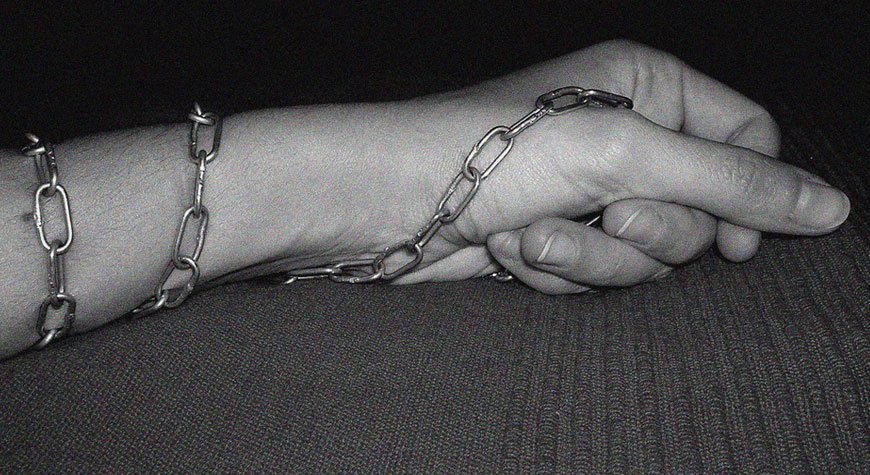I stopped going to Church a few years ago. I can no longer count how many years have gone by since my presence in a church was not a consequence of being a wedding guest or a tourist visiting a cathedral.
The decision to stop going to Mass was not an easy one to make. It was not borne out of a desire to sleep in on Sundays, and it always surprises me when people think that I reached the decision to stop going to Church just like that – as if religion were something you can simply turn off, like a light switch. When well-meaning friends suggest that I go back to Church, I tell them that it’s not as simple as turning that light switch back on.
My religion – like many other Catholics – was so much a part of how I was raised and so much a part of who I was. Belonging to a middle-class Filipino family growing up in the West Coast of the US, my religion was integral to my identity. Being Catholic was like being Filipino, it was not to be questioned. It just was.
I grew up in a very Catholic household and for many years would go to Mass on both Saturday and Sunday. I think it was at the age of 7 when I took on the vow of Lourdes, without even really understanding it. I went to Church for months in the standard white dress with light blue belt similar to what the Virgin Mother wore when she appeared in Lourdes. I would diligently go to confession, making mental note of my sins before doing so and fervently carrying out my penance after.
As a child, there were many times in my life when I turned to my religion for hope, for deliverance.
Once in high school, when our Religion teacher gave us a surprise quiz on the mysteries of the rosary, I was the only one in the class who got a perfect score – much to the amazement and amusement of my classmates. (Years later, I wasn’t even aware that another set of mysteries was introduced by the Church.)
Deciding not to go to Church was a painful and difficult decision for me to reach.
It was after many years of conflicted emotion followed by attempts at making peace with the Church that I finally decided to leave it all together.
Getting a Sermon at Sunday Sermons
I think it started with the castigation and admonishment that to me became characteristic of the Sunday sermons: We were all grave sinners that’s why we're pummeled by typhoons, and all natural disasters were calls to repent and not about climate change. Following this logic, I sardonically wondered if those who survived typhoons were the chosen ones or just had the means to live in sturdier homes.
The estrangement and alienation heightened during the heated reproductive health debates. Local legislators who supported the bill were vilified during homilies, and the pulpit was used to denounce the use of modern birth control and every one who used it. This, while groups of mendicant children roamed the church courtyards asking for alms.
My instinct and logic struggled with the fatalistic belief that our lives were willed by God and were a natural and irrevocable destiny. To me, it propagated the mindset that we do not have better lives because we do not deserve better.
I thought the Church was supposed to give me hope; was supposed to be something to believe in – something that would make me feel valued rather than unworthy.
And then at some point, I simply felt betrayed.
My best friend is gay and when he told me it didn’t make a difference to me. His sexual orientation did nothing to affect the depth of our friendship. The same is true for my many gay and lesbian friends – who they choose to love, fuck, or marry is a personal choice not a chance to pass judgment on. Just as it is for everyone else.
But this whole institution where I first learned the values of compassion and understanding looked down on and could not accept homosexuality. It could not show the same values of acceptance and compassion that it taught me – sometimes even required me – to show other human beings.
It was ironic and confusing.
Later on, there were other pronouncements that I felt were an attack on my choice to be a single parent, like when one pope came out with a statement about how single mothers were the reason why the family as a basic social unit was losing its sanctity and meaning.
What would these robed men who have never been married, never had children (supposedly) know about the everyday reality of raising a child? Actually, that’s how I began to see the Church: pontificating about things they know nothing about, like an armchair general giving orders for a battle they will never engage in.
I had outgrown the Church.
There are still many occasions when I find myself instinctively performing acts of supplication. Many times, I close my eyes and ask for deliverance, guidance and often, to simply give thanks. I just don’t do it in church anymore. I still have faith; I still believe in a higher being and the principle of doing good and being kind to others. But I no longer look to the robed men for enlightenment.
I know now that there is a difference between religion and faith.
I still haven’t gone back to Church. And I won’t. Not outside of being a wedding guest or tourist.
But Pope Francis has given me a reason to try and believe again. When he said pretty much what was on a lot of people’s minds – that the Church was too focused on contraception, LGBT issues when it should focus more on uplifting people, I took notice.
For the first time in a long time, I am hopeful that this institution just might find it in itself to reform, to release itself from the shackles of its own dogma to adapt to the world today and live up to its mandate to uplift others – regardless of religion, sexual orientation, and choice of birth control.
*This story was first published in Rappler.com, a Manila-based social news network where stories inspire community engagement and digitally fuelled actions for social change.
** Illustration by Elisa








Comments